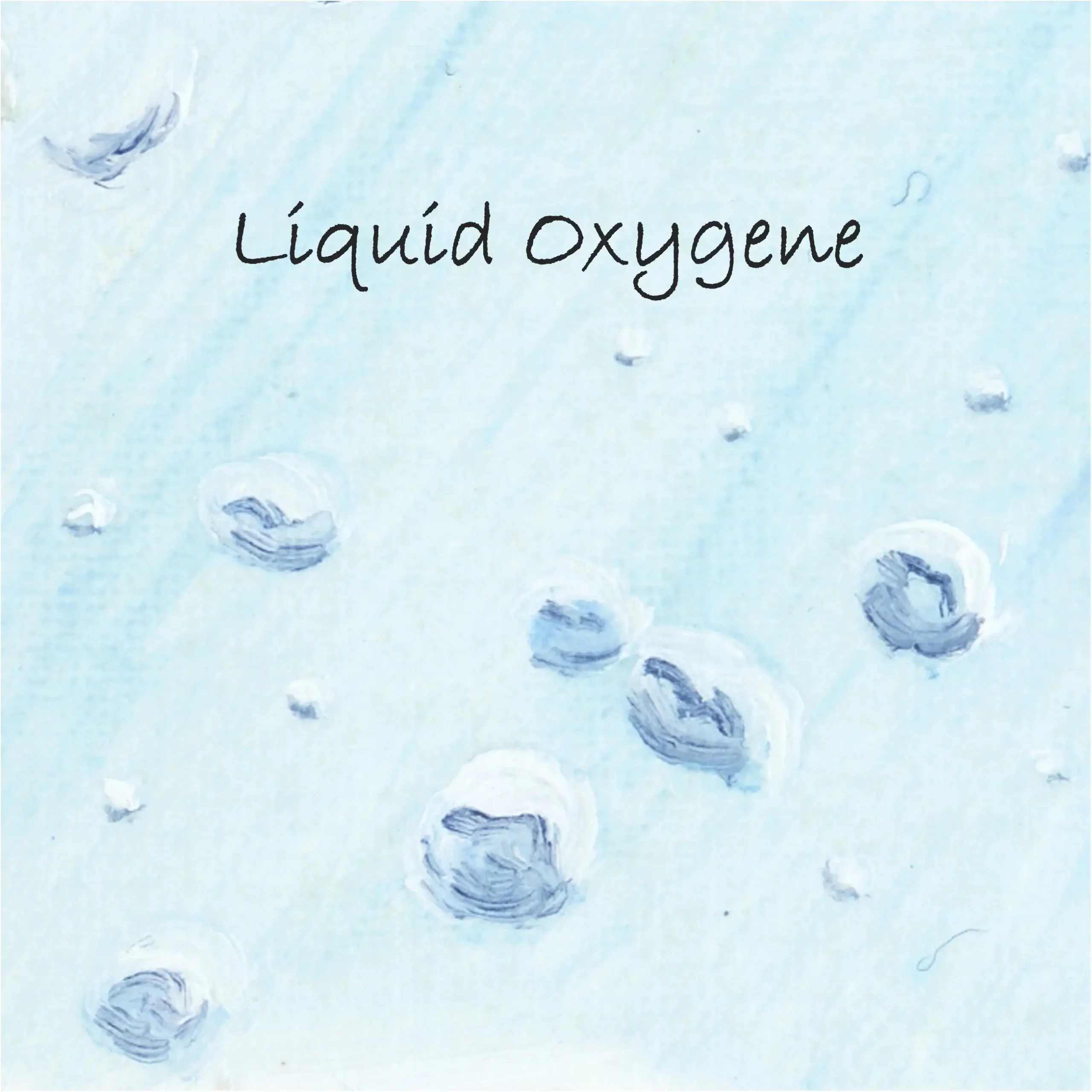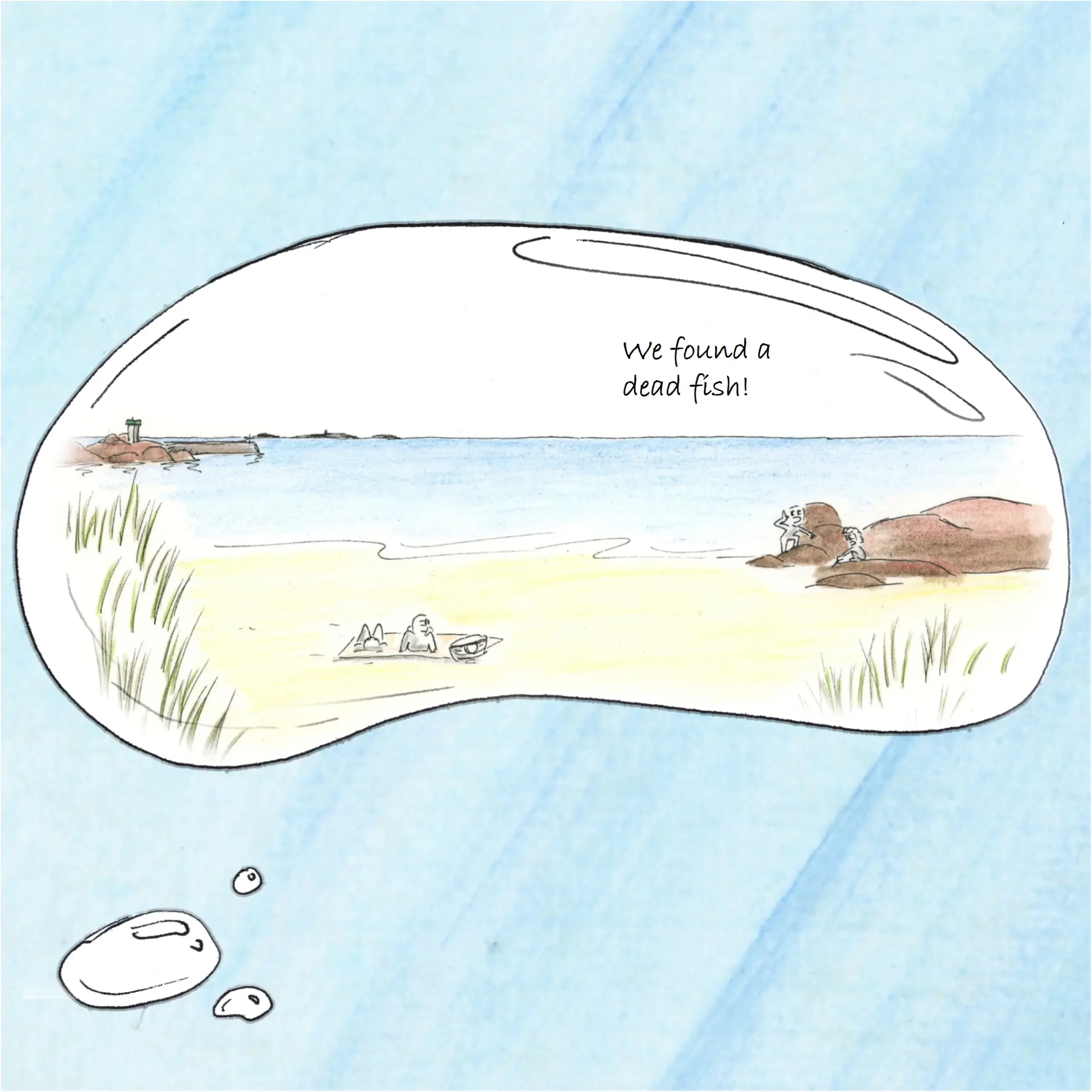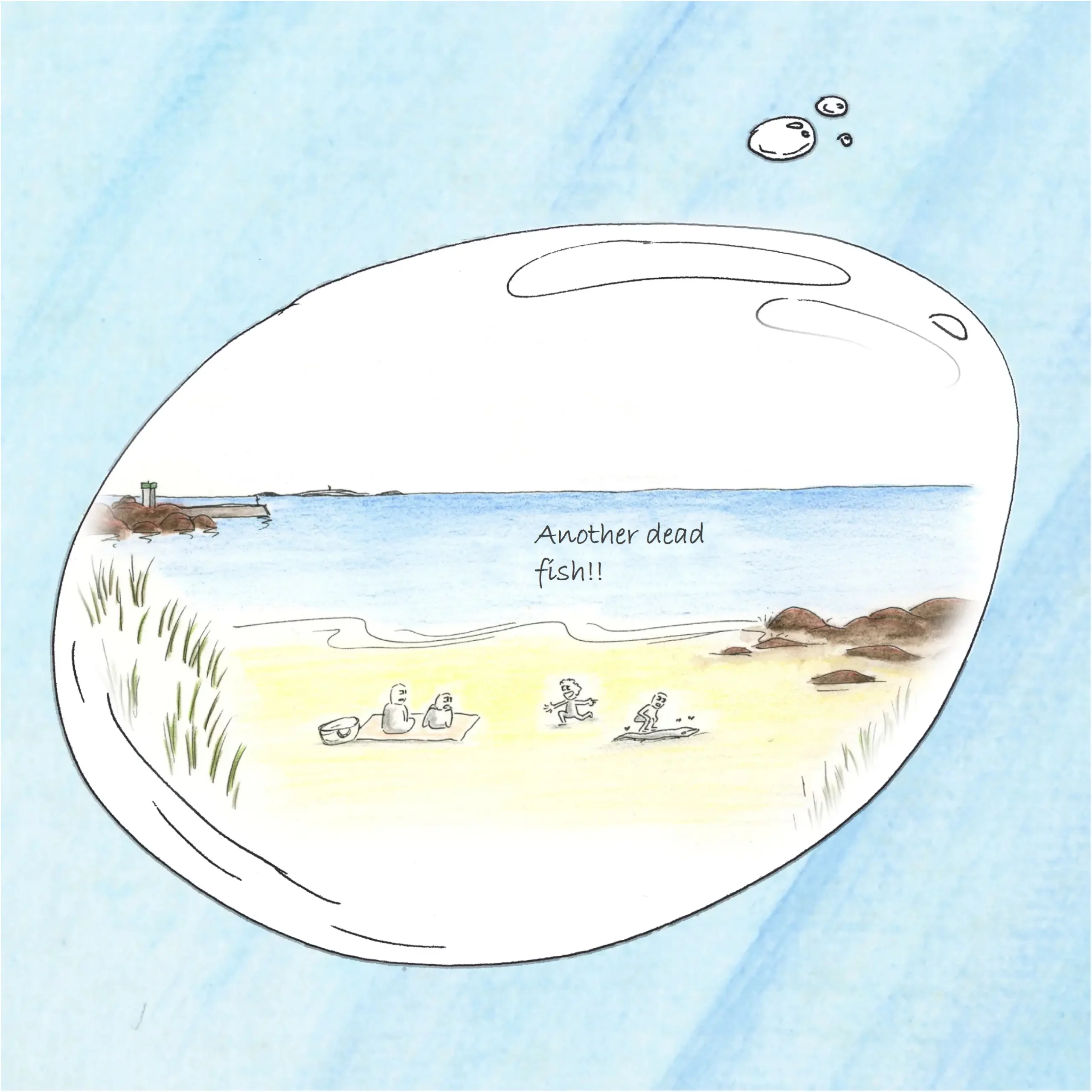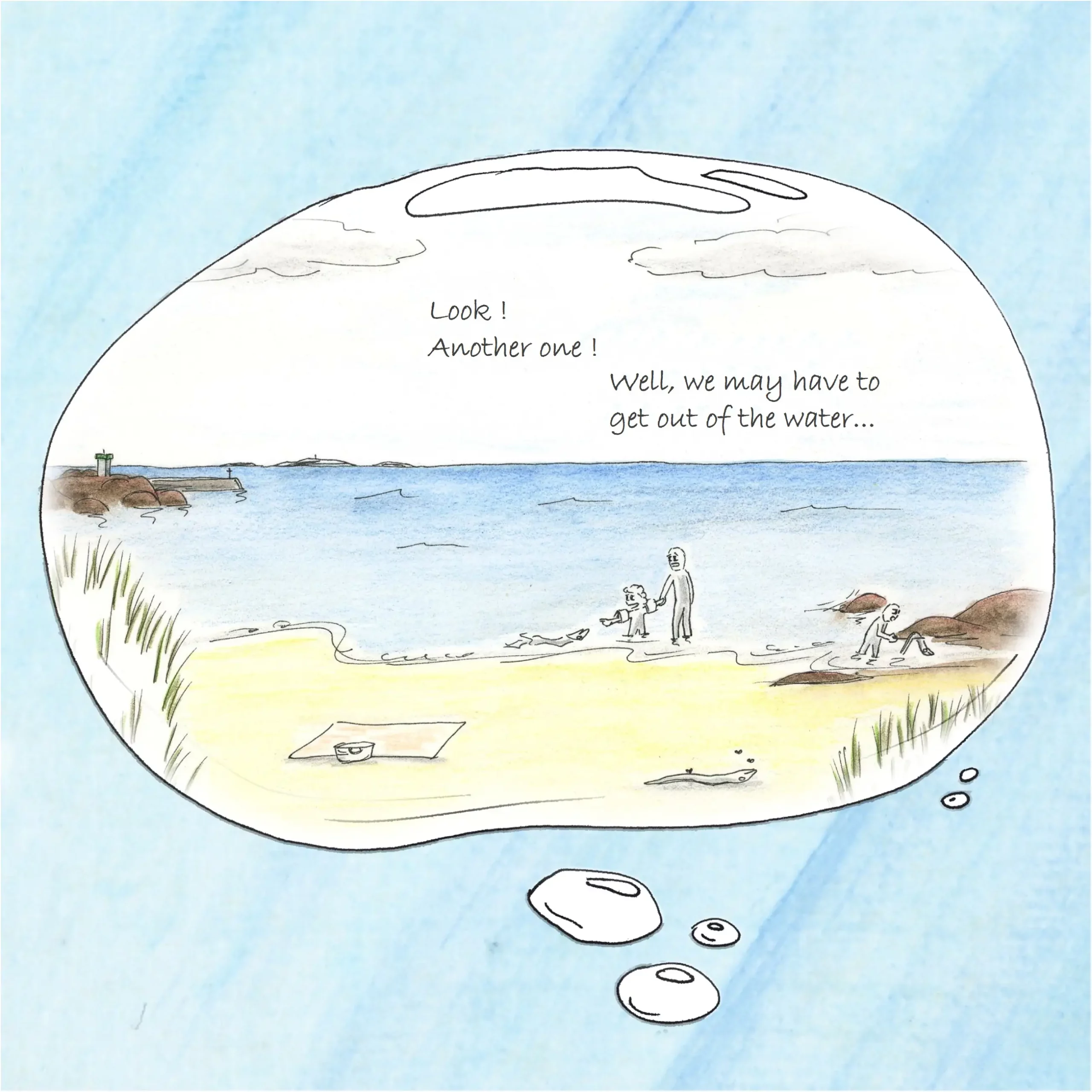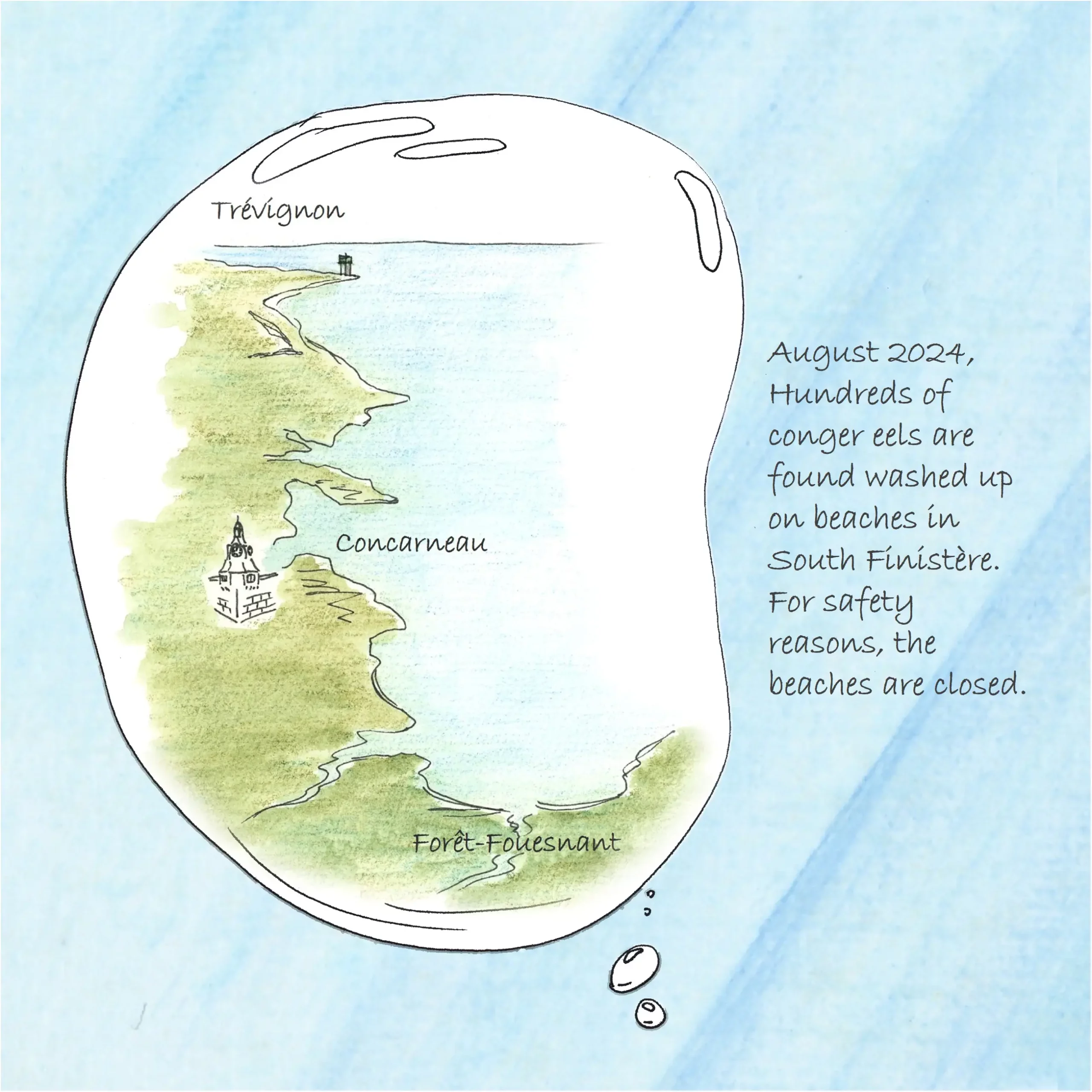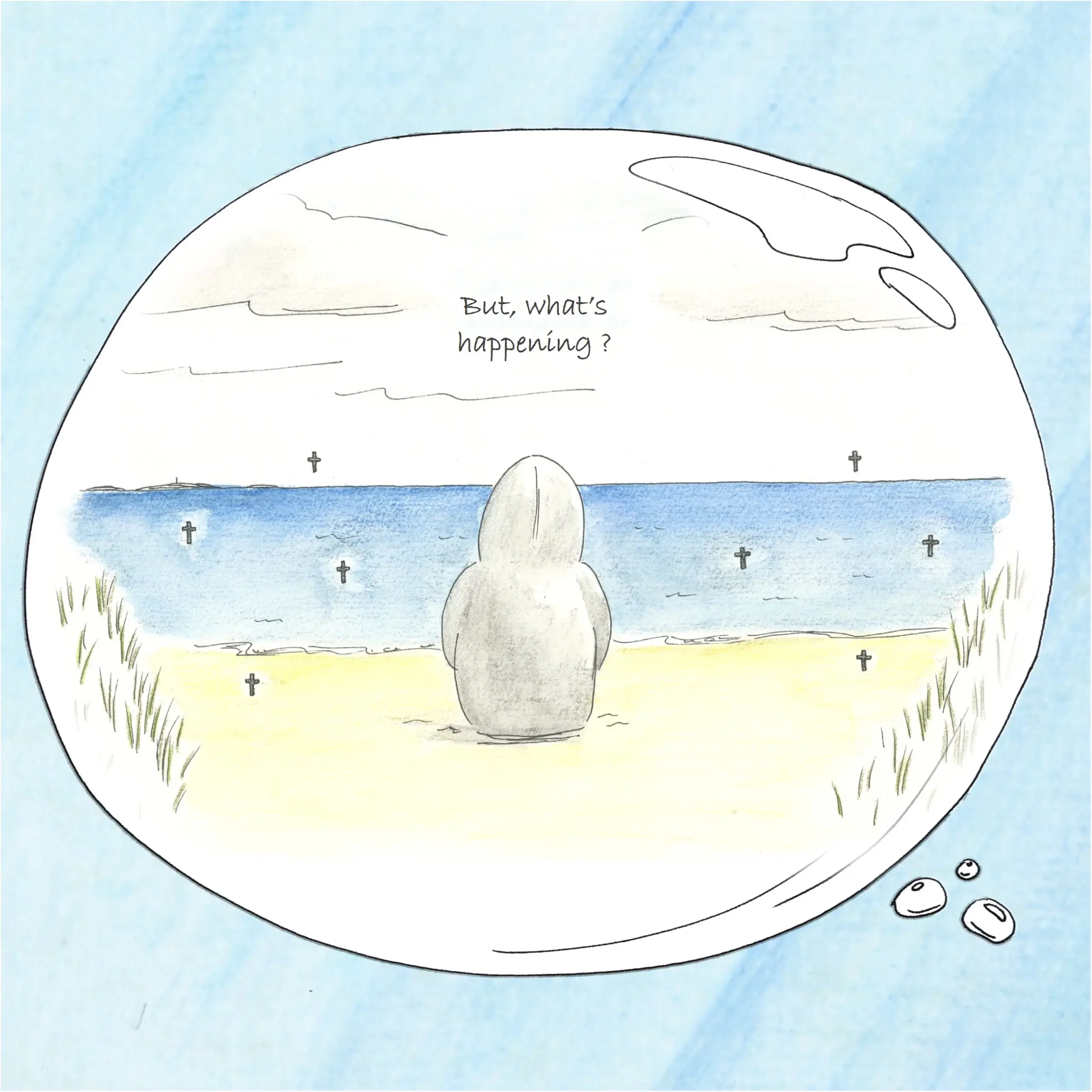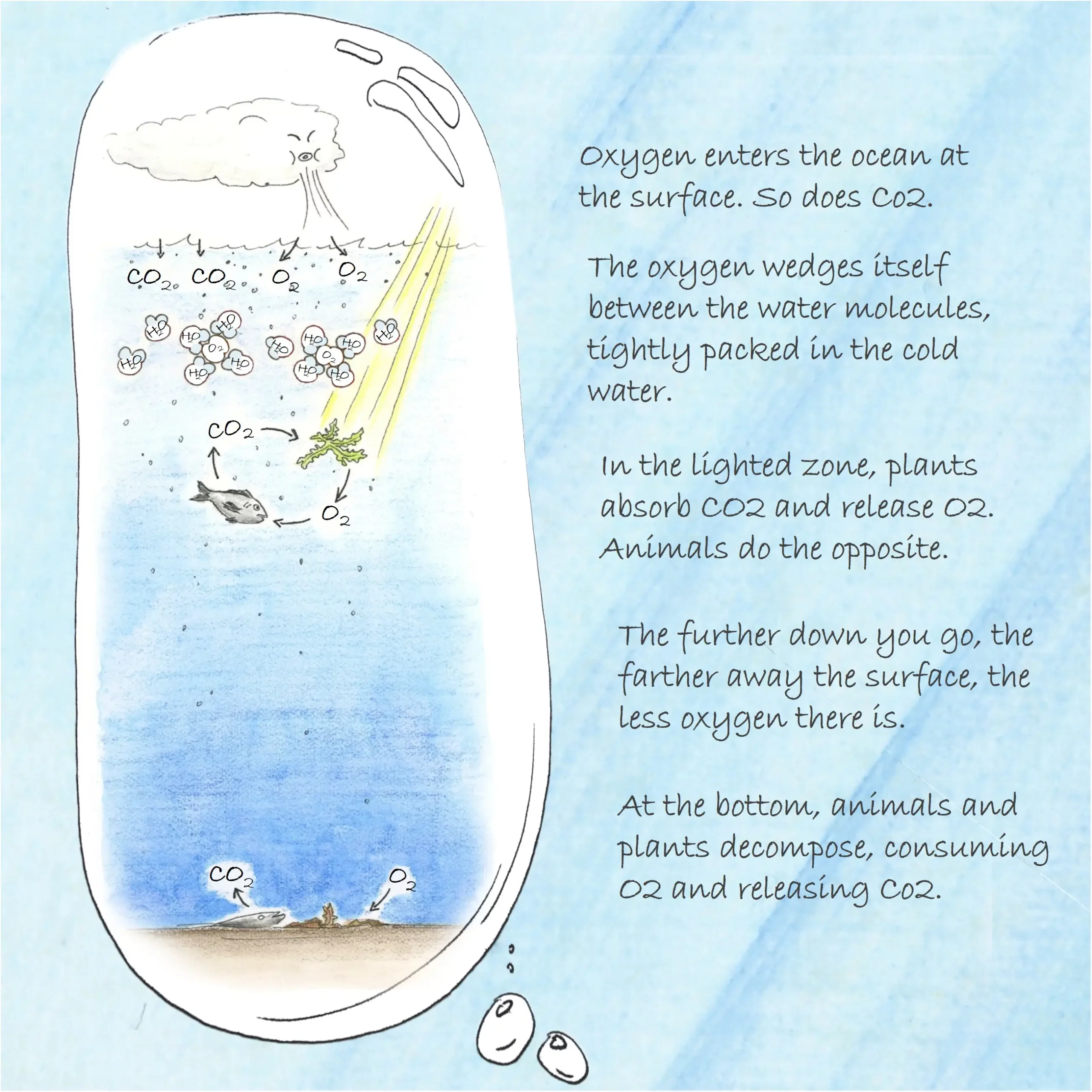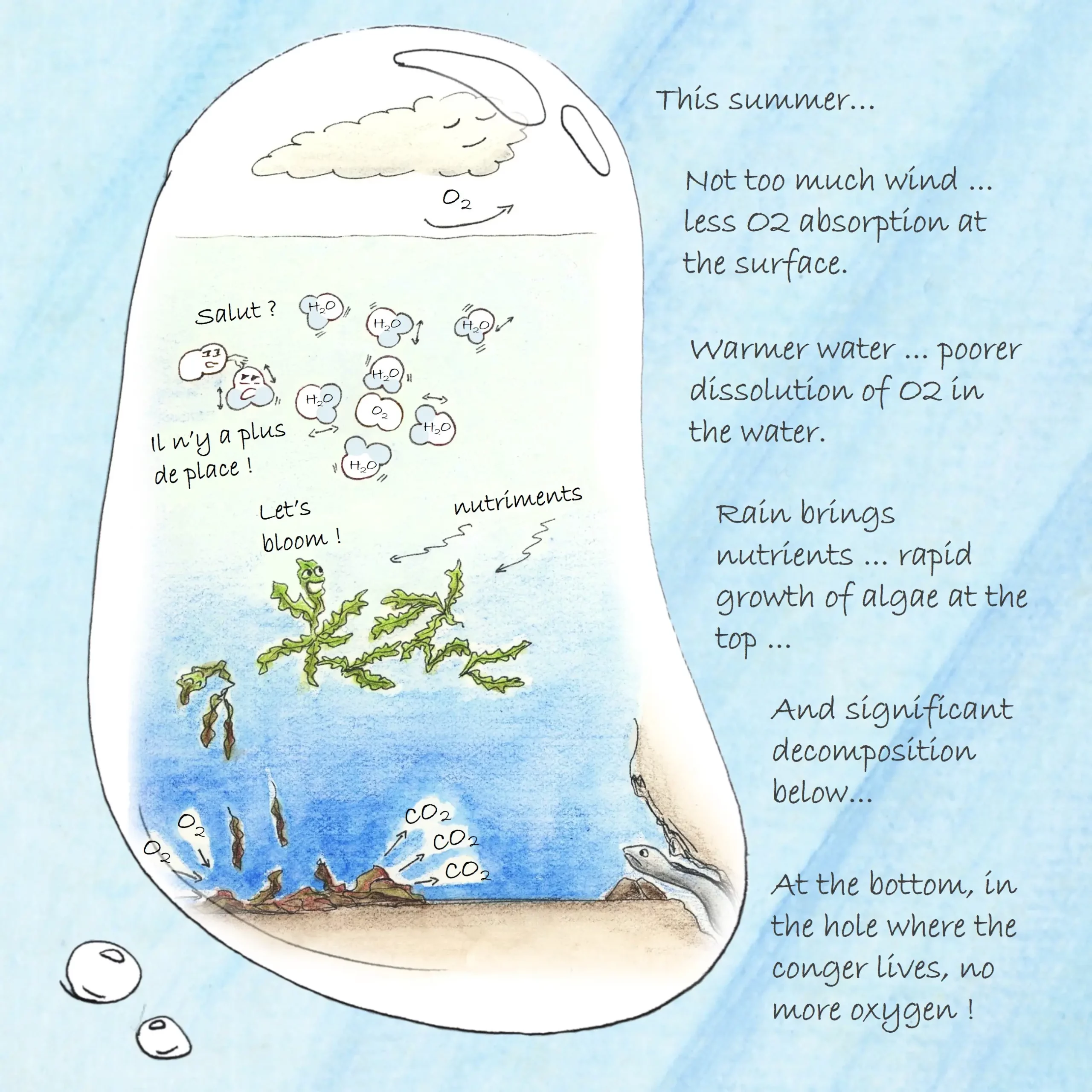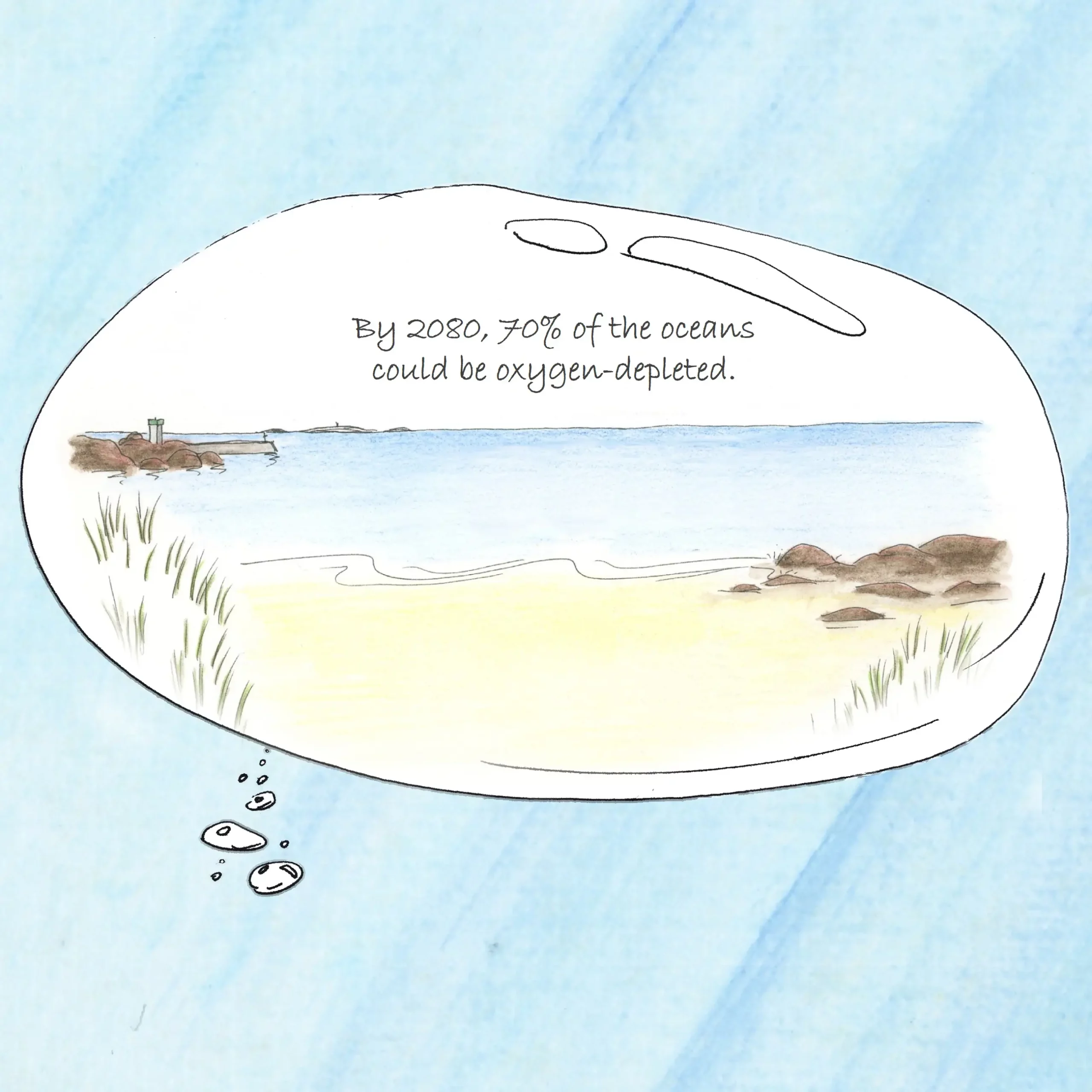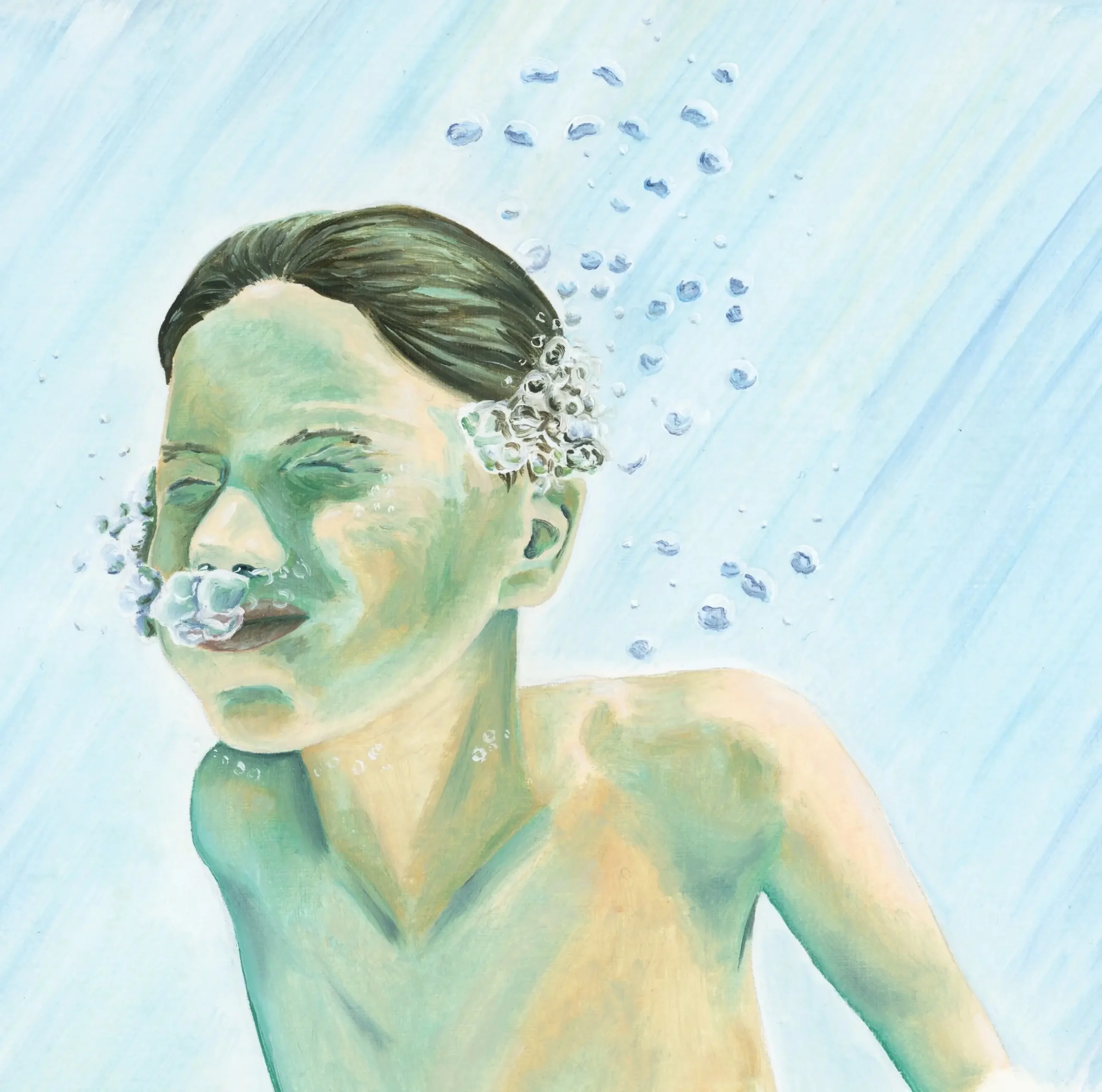The ocean is warming up, so what?
Marine animals are free. They can move. They can swim wherever temperatures suit them.
Maybe that’s what the fish are telling themselves as they watch us: the atmosphere is vast, land animals are free. They can move. They can live wherever temperatures suit them.
Except it’s not that simple for us. And it’s not so simple for fish either.
Marine animals eat in certain places because the smaller animals they eat are there, and the smaller animals are there because the plants they eat are there, and the plants are there because there’s the right amount of light and nutrients in the water there. Like us, with our crops and livestock, who, without international transport, have to live where our food can exist.
Marine animals live in certain parts of the sea because their bodies can withstand a certain pressure, a certain level of oxygen, a certain level of clarity, a certain level of salinity. Just as we, without technology, can’t live above a certain altitude, below a certain oxygen level, or without any natural light.
Marine plants and animals are in a very specific place in the ocean, and like us, they’re not so free to move around. For many, in the end, they’re trapped by their environment, which they can’t leave and which is changing faster than they can.
It doesn’t affect us as much, because it happens underwater: we don’t see forests of seaweed dying out the way we see forests of trees drying up; we don’t see the Mediterranean being drained of life the way we see the desert advancing on land. These are still figures, words, reports to read and tables to understand. And it’s hard for us to get to grips with an intangible reality.
But let me reassure you. Nature is planning to call us back, and not just in the form of violent weather events, no… that will not be all. This summer on the beaches of South Finistère, we had a frightening glimpse of what’s in store for us. Frightening, yes, because what we modestly call ‘disruption of ecosystems’ could more concretely be called ‘animals dying’. I’m sharing it with you in pictures, which are nonetheless light, to encourage sharing.
See you soon.
Lucile

